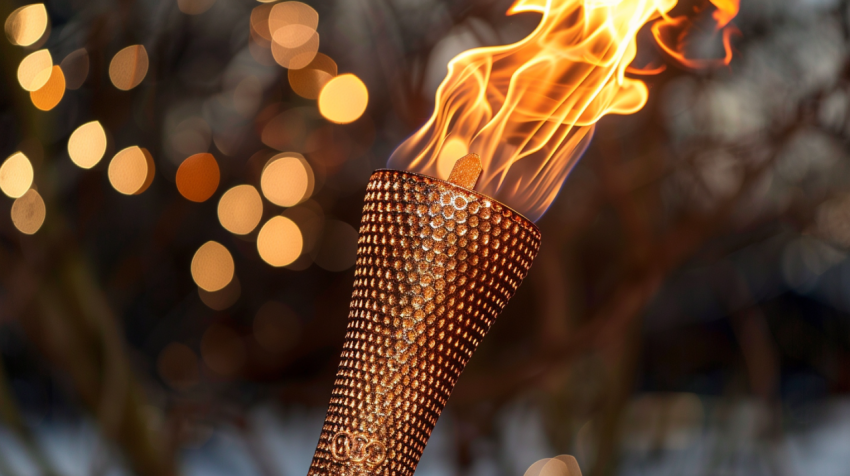











The Olympic Games: A Comprehensive Guide to History, Sports, and Traditions
The Olympic Games are the world's foremost international sporting event, bringing together athletes from across the globe to compete in a spirit of peace and sportsmanship. This guide provides a comprehensive overview of the Olympic Games, covering their history, the sports featured, key traditions, the significance of medals, and the future of this global spectacle.
History of the Olympic Games
- Ancient Olympics (776 BC - 393 AD): Held in Olympia, Greece, every four years, the ancient Olympic Games were a religious and athletic festival. They featured sports such as running, wrestling, boxing, and chariot racing.
- Modern Olympics Revival (1896): Baron Pierre de Coubertin, a French educator, spearheaded the revival of the Olympic Games, with the first modern Games held in Athens, Greece, in 1896.
- Growth and Evolution: The Olympic Games have grown significantly since 1896, with the addition of new sports, increased participation, and the establishment of the Winter Olympics in 1924.
- The International Olympic Committee (IOC): Founded by Coubertin in 1894, the IOC is the governing body of the Olympic Movement, responsible for organizing and overseeing the Games.
The Olympic Spirit
The Olympic spirit, also known as Olympism, is a philosophy of life that emphasizes:
- Fair Play: Respect for the rules and for opponents.
- Sportsmanship: Gracious conduct in victory and defeat.
- Friendship and Solidarity: Building relationships and understanding between people of different nations.
- Peace: Promoting peace through sport.
- Excellence: Striving for personal and athletic excellence.
Summer Olympic Sports
The Summer Olympic Games feature a wide range of sports, including:
- Aquatics: Swimming, diving, synchronized swimming, water polo.
- Archery
- Athletics: Track and field events.
- Badminton
- Basketball
- Boxing
- Canoeing/Kayaking
- Cycling: Road, track, mountain bike, BMX.
- Equestrian: Dressage, eventing, jumping.
- Fencing
- Field Hockey
- Football (Soccer)
- Golf
- Gymnastics: Artistic, rhythmic, trampoline.
- Handball
- Judo
- Modern Pentathlon
- Rowing
- Rugby Sevens
- Sailing
- Shooting
- Skateboarding
- Sport Climbing
- Surfing
- Table Tennis
- Taekwondo
- Tennis
- Triathlon
- Volleyball: Indoor and beach volleyball.
- Weightlifting
- Wrestling: Freestyle and Greco-Roman.
Winter Olympic Sports
The Winter Olympic Games feature sports performed on snow and ice:
- Alpine Skiing
- Biathlon
- Bobsleigh
- Cross-Country Skiing
- Curling
- Figure Skating
- Freestyle Skiing
- Ice Hockey
- Luge
- Nordic Combined
- Short Track Speed Skating
- Skeleton
- Ski Jumping
- Snowboarding
- Speed Skating
Olympic Traditions
- The Olympic Flame: Symbolizes the continuity between the ancient and modern Games. The flame is lit in Olympia, Greece, and carried by a torch relay to the host city.
- The Opening Ceremony: A spectacular event that marks the official start of the Games, featuring the Parade of Nations and the lighting of the Olympic cauldron.
- The Closing Ceremony: Marks the end of the Games, featuring the extinguishing of the Olympic cauldron and the handover to the next host city.
- The Olympic Rings: Five interlocking rings (blue, yellow, black, green, and red) representing the five continents.
- The Olympic Motto: "Citius, Altius, Fortius" (Faster, Higher, Stronger).
Medals and Recognition
- Gold, Silver, and Bronze Medals: Awarded to the top three finishers in each event.
- Medal Table: A ranking of countries based on the number of medals won.
- Olympic Records: The best performances in Olympic history.
- World Records: Often broken at the Olympic Games, as athletes strive for peak performance.
The Future of the Olympic Games
The Olympic Games continue to evolve, facing challenges and opportunities:
- Sustainability: A growing emphasis on environmentally friendly and sustainable Games.
- Cost and Legacy: Addressing the costs of hosting the Games and ensuring a positive long-term impact on host cities.
- New Sports: The IOC continues to consider adding new sports to the Olympic program to appeal to younger audiences.
- Technology: Advances in technology are impacting various aspects of the Games, from broadcasting to athlete training.
Conclusion
The Olympic Games are a global celebration of sport, bringing together athletes and nations in a spirit of competition and camaraderie. From their ancient roots to their modern-day evolution, the Olympic Games have captured the world's imagination and inspired generations of athletes. As the Games continue to adapt to the changing world, their core values of excellence, friendship, and respect remain timeless.
Olympic Games, Olympics, Summer Olympics, Winter Olympics, Olympic sports, Olympic history, Olympic medals, Olympic records, IOC, Olympic flame, Opening Ceremony, Closing Ceremony, Olympic rings, Olympic motto, Tokyo 2020, Paris 2024, Los Angeles 2028, Olympics news, Olympics results

